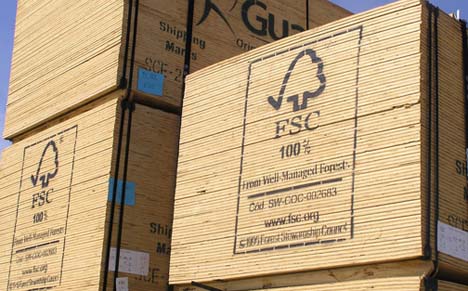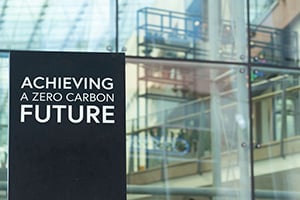By Alyson Laura, LEED AP BD+C, O+M
 Wednesday, March 4th, 2015. This was my first visit to the Georgia State capitol as a citizen concerned about state legislation. I arrived on bike, proudly wearing my Sustainable Investment Group (SIG) tree logo-emblazed polo shirt, and was by far the most underdressed person in attendance. After all, this is the State Capitol of Georgia, lots of powerful people wearing suits and shiny shoes. I joined two of my colleagues and dozens of like-minded professionals and non-profit representatives in room 403 for the public hearing of the State Properties committee in the House of Representatives.
Wednesday, March 4th, 2015. This was my first visit to the Georgia State capitol as a citizen concerned about state legislation. I arrived on bike, proudly wearing my Sustainable Investment Group (SIG) tree logo-emblazed polo shirt, and was by far the most underdressed person in attendance. After all, this is the State Capitol of Georgia, lots of powerful people wearing suits and shiny shoes. I joined two of my colleagues and dozens of like-minded professionals and non-profit representatives in room 403 for the public hearing of the State Properties committee in the House of Representatives.
Four bills on the agenda spanned the full spectrum of real estate ownership concerns: contractor inspection certifications-passed, monument protection-passed, small business protection-passed, and what everyone was wanting for…House Bill 255, “equal credits be given to certain forestry certification systems when using green building standards in state construction operation, repair, and renovation projects.”
The meeting began with the chairperson asking all attendees to bow their heads as she prayed for the committee to, “Serve the people of Georgia.”
Representative Cheokas sponsored the bill and introduced it to the room by stating the intent is to ensure Georgia jobs. The desire is for no obstacles to local or global sales of Georgia grown forestry products. It was further clarified that the bill is not anti-LEED, rather pro-forestry.
 Here is where the public debate is rooted; LEED only recognizes Forest Stewardship Certification (FSC) for the optional certified wood credit worth 1:110 points. However, hardly any of the forests in Georgia are FSC certified, by choice. Some owners voluntarily certify to the Sustainable Forestry Initiative (SFI), which is the largest certification, by area, in the United States, and some owners use the oldest wood certification system, American Tree Farm. Most FSC forests are in Canada or further overseas.
Here is where the public debate is rooted; LEED only recognizes Forest Stewardship Certification (FSC) for the optional certified wood credit worth 1:110 points. However, hardly any of the forests in Georgia are FSC certified, by choice. Some owners voluntarily certify to the Sustainable Forestry Initiative (SFI), which is the largest certification, by area, in the United States, and some owners use the oldest wood certification system, American Tree Farm. Most FSC forests are in Canada or further overseas.
I’m not familiar with anyone losing a forestry job because there are too many LEED buildings buying up all the FSC wood not produced in Georgia. David Freedman, Director of USGBC Georgia chapter presented some amazing facts like that out of 29 state owned LEED certified buildings, only two used a total of $200,000 of FSC certified wood products. That’s a small percentage of the 23 million acres of trees in Georgia, which holds the largest private forest area of any state.
Moreover, Mr. Freedman held up as evidence, a paper receipt printed by Home Depot, a Georgia based company. The back side of the receipt is watermarked indicating that it was printed on FSC certified paper! Jaws dropped across the room. That means Home Depot is not sourcing paper products from Georgia forests. And if FSC is the preferred certification system for Home Depot, why is it too good for the State of Georgia and its private forest owners?
The real questions is, why don’t Georgia farmers want to certify their tree stewardship to the global recognized gold standard for forest certifications?
My job depends on the expansion of LEED certified buildings. In 2014, the Sustainable Investment Group (SIG) created six new jobs in Georgia due to the endurance and market preference of the USGBC’s LEED brand as the premier green building certification system across the entire world. In the state of Georgia alone, there are over 1500 LEED certified buildings. The closest competing green building rating standard, Green Globes, only has 20 certified buildings. If the state of Georgia settles for anything less than LEED, we will look unsophisticated. Especially compared to the 30 states and 16 federal agencies who mandate LEED certifications on their buildings.
I was impressed by my fellow citizens speaking out and proposing amendments to reshape the bill to meet the stated intention of promoting Georgia products over certified wood as a priority in pursuing green building certifications, rather than its current language which singles out LEED as, ‘bad.’
I also want to recognize the outstandingly balanced viewpoint of Representative Buckner, a self-identified timber grower and supporter of LEED certification. She appeared to be the only one in the room listening to the concerned voices of the people of Georgia, and ignoring the lobbyists. The bill passed the committee with only two dissenting votes.
What happens now?
State senators will vote next on approving this bill to be written into state legislation effectively banning LEED certification from state funded buildings. You can help support LEED in Georgia by contacting your senator, here.
Alyson Laura, is a Sustainability Maven, LEED AP BD+C, O+M at Sustainable Investment Group (SIG) and is located in Atlanta at SIG’s headquarters.
© 2015 Sustainable Investment Group (SIG). All Rights reserved.



